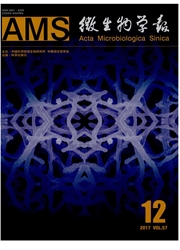

 中文摘要:
中文摘要:
【目的】细胞自噬(Autophagy)是真核细胞用于清除胞内聚集物、损伤细胞器而维持其稳态平衡的一种溶酶体降解途径。细胞自噬不仅在细胞生长发育、成熟、分化等过程中起重要作用,且与病毒感染、细胞免疫密切相关。通过研究细胞自噬对乙肝病毒感染的I型干扰素的影响,为进一步阐明乙肝病毒感染对机体天然免疫反应研究奠定基础。【方法】通过siRNA干扰Beclin1和Atg7表达,检测自噬小体形成,Real-TimePCR检测干扰素因子表达,分析了细胞自噬对乙肝病毒感染细胞中干扰素形成的影响。【结果】干扰Beclin1和Atg7均可抑制细胞自噬发生,抑制细胞自噬可降低干扰素因子的表达,而对细胞活力和细胞凋亡无明显影响。【结论】抑制细胞自噬,可降低HBV感染细胞中IFNβ和IFI27的表达,这在一定程度上意味着,HBV诱导的自噬具有增强感染细胞天然免疫反应的作用。
 英文摘要:
英文摘要:
[Object] Autophagy is a lysosomal degradation pathway in which eukaryotic cells dispose intracellular aggregates or defective organelles to maintain cellular homeostasis.Autophagy not only plays a key role in the growth,development,mature and differentiation of cells,but also is associated with pathogenesis,virus infection and immunity.To clarify the mechanism of Hepatitis B virus(HBV) infection and cell immune response,we investigated the relationship between autophagy and IFN factors in the HBV infected cells.[Methods] We inhibited the autophagy by the RNA interference knockdown of Beclin1 and Atg7,the essential autophagic genes,examined the number of autophagosomes by fluorescence microscopy and examined the expression of interferon factors by Real-Time PCR.[Results] Autophagy was inhibited after transfected siBeclin1 or siAtg7.After inhibiting the autophagy,the expression of interferon factors were decreased,but cell apoptosis was not induced.[Conclusion] When the autophagy was inhibited,interferon signaling pathways were impaired in the HBV infected cells.The finding indicated that HBV induced-autophagy enhanced the interferon signaling pathways,and then increased the native immune response.
 同期刊论文项目
同期刊论文项目
 同项目期刊论文
同项目期刊论文
 期刊信息
期刊信息
